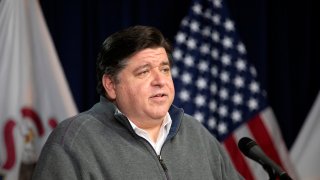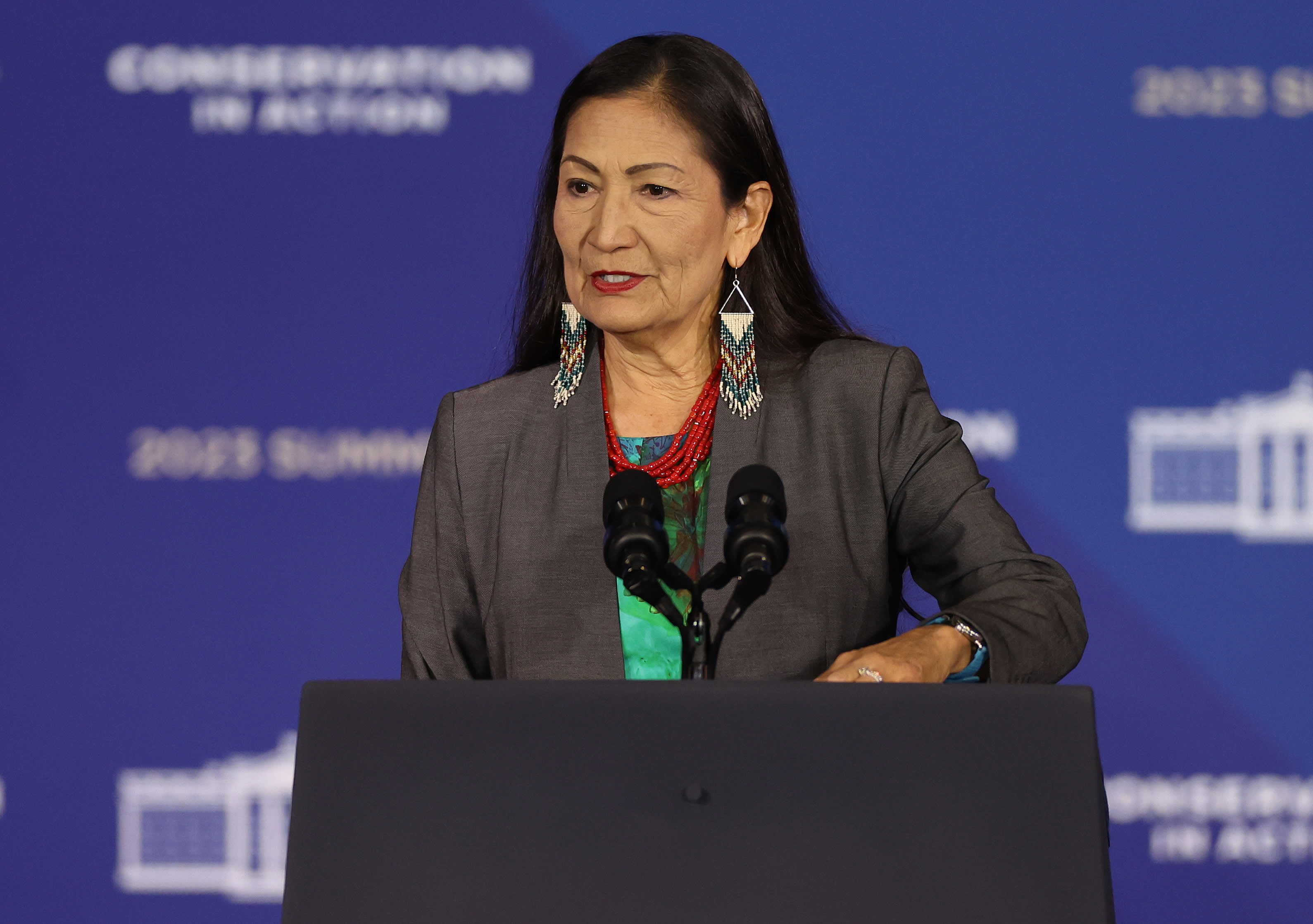
Illinois Gov. J.B. Pritzker announced more than $700 million in spending reductions for fiscal year 2021 as the state looks to cope with the projected loss of nearly $4 billion in revenues due to the COVID-19 pandemic.
Pritzker says that a variety of strategies will be used to hit those reduction benchmarks, including a hiring freeze, reductions or freezes in grant money allocations, and operational savings.
The governor says that agencies who are working to cope with the ongoing coronavirus pandemic will not be impacted by the cuts.
“Cutting our budget will be, by its very nature, painful,” he said. “If anything, our schools and public safety and healthcare deserve more investments, not less.”
According to current projections, the state believes it will lose in excess of $4 billion in revenues because of the pandemic. The state also has a projected budget shortfall of $3.9 billion in the current fiscal year, nearly $2 billion of which is attributed to revenue shortfalls related to the pandemic.
To help cope with those losses, the state will make significant changes in its Department of Corrections, with the governor announcing that approximately 10% of the spending reductions will be focused within the department.
As part of those reductions, Pritzker announced the formation of the Illinois Corrections Transformation Advisory Team, a group designed to improve efficiency within the department. Pritzker says such a move is necessary due to decreasing numbers of incarcerated individuals in the state, with the governor announcing that the state is housing 10,000 fewer inmates than it was a year ago.
Local
Grant distribution will either be frozen or reduced in several state departments, including the Department of Natural Resources, the Department of Agriculture, and the Department of Commerce and Economic Opportunity.
That includes park and open land projects, freezes or reductions in DCEO grants and pausing issuance of school maintenance grants, which are dependent on casino gaming revenues. Those casinos have been shuttered several times due to the pandemic, including under the current Tier 3 coronavirus mitigation rules.
The state will also continue its freezes on non-essential hiring and travel indefinitely. Those freezes were put into effect because of the pandemic, but will continue even as mitigations are rolled back, Pritzker said. Officials will also reduce vehicle and equipment purchases for departments under the control of the executive branch.
The governor is also hoping to achieve a $75 million reduction in spending by negotiating with AFSCME, the union that represents public workers in the state of Illinois. The state hopes to implement furlough days and personnel cost adjustments, but the union has indicated that it will oppose measures that will take its employees off the front lines.
“Undoubtedly our state faces a severe fiscal crisis and action is urgently needed,” Roberta Lynch, executive director of AFSCME Council 31, said in a statement. “However, it is grossly unjust to suggest that frontline state employees who have already sacrificed so much in our current public health crisis should bear an outsized share of the burden of fixing the state’s fiscal crisis as well.”
Pritzker said that the decision to ask employees to take furlough days wasn’t an easy one, but says that in light of the failure of the Fair Tax Amendment earlier this year, unpopular options are the only ones left on the table.
“Taking employees off the front lines will slow the delivery of services to our residents, but this is the place we find ourselves today,” he said. “It pains me to pursue these actions, because these state employees are public servants who dedicate themselves to improving the lives of the people we serve, often the people most in need of our help.”
Pritzker leveled several broadsides against opponents of the Fair Tax Amendment, saying that state Republicans opposed the measure without ever proposing legislative ways for the state to balance its budget.
“The Republicans, who worked so hard to defeat the best solution, literally have no solutions. I’m waiting for them,” he said. “The General Assembly needs to come to the table here so we can make some decisions. I put on the table some very significant cuts, and they need to come to the table with their cuts, and we’ll see where they are.”
Pritzker says that his focus at this time is on reductions in spending, indicating that he is not yet ready to discuss the possibility of across-the-board income tax hikes after the failure of the progressive income tax amendment.
“I’m focused on the cuts that we need to make, and we need to balance the budget,” he said. “You have to look at both sides: the revenue side and the expenditure side, (but) I’m focused entirely on what cuts we can make. I want to make sure the General Assembly and the governor are managing the taxpayer’s dollars as efficiently as we can. That’s all I’m focused on.”
The governor says that most of, if not all, of the proposed cuts will be implemented even if Congress passes a COVID-19 relief bill with funding for state and local governments, but he still encouraged federal lawmakers to get a bill through the legislature in order to avoid further cuts or tax hikes in the future.
“As every state in the nation faces budget shortfalls due to the ongoing COVID-19 pandemic, the governor will continue to urge Congress to pass direct funding for state and local governments who have coordinated the pandemic response,” the governor’s office said in a press release.
Amid the myriad of challenges that the state is facing, Pritzker still believes that when the pandemic ends and when the state’s economy is able to begin transitioning to a more normal state, officials will be able to hammer out agreements and get the state onto better financial footing.
“Despite all the current challenges, I am confident we will continue our ascent to economic strength and fiscal stability,” he said. “We will find a way, and while there is no easy path forward, I promise that we will get through this, working together as people of goodwill, with a laser-like focus on doing what’s best for the working families of Illinois.”



